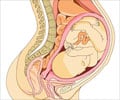In a small number of intrauterine fetal deaths, scientists have identified genetic mutations associated with long QT syndrome (LQTS), a genetic abnormality in the heart's electrical system.

Intrauterine fetal death or still birth happens in approximately one out of every 160 pregnancies and accounts for 50 percent of all perinatal deaths. "We know that the post-mortem evaluation often has not been able to explain these deaths," says Michael J. Ackerman, M.D., Ph.D., pediatric cardiologist at Mayo Clinic and co-study senior author along with Peter J. Schwartz, M.D., Ph.D., of the University of Pavia, Italy. "Those of us who study LQTS and treat LQTS patients have often wondered whether LQTS may be the cause of some of these deaths."
In the study, more than 1,300 ostensibly healthy individuals served as controls. In addition, publicly available exome (the entire portion of the genome consisting of protein-coding sequences) databases were assessed for the general population frequency of identified genetic variances.
"Our preliminary evidence suggests that LQTS may be the cause for approximately 5 percent of otherwise unexplained stillbirths and points to the need for further large-scale studies," says Dr. Ackerman, director of Mayo's LQTS Clinic and Windland Smith Rice Cardiovascular Genomics Research Professor. "With LQTS, when we know of its presence, it is a very treatable condition but still more work needs to be done to prevent the family's first tragedy from occurring."
In LQTS, which affects one in 2,000 people, the rapid heartbeats can trigger a sudden fainting spell, seizure, or sudden death. Life-threatening cardiac arrhythmias can occur unexpectedly, mainly during childhood or adolescence. Treatment can involve medication, medical devices, or surgery.
Source-Eurekalert
 MEDINDIA
MEDINDIA



 Email
Email










